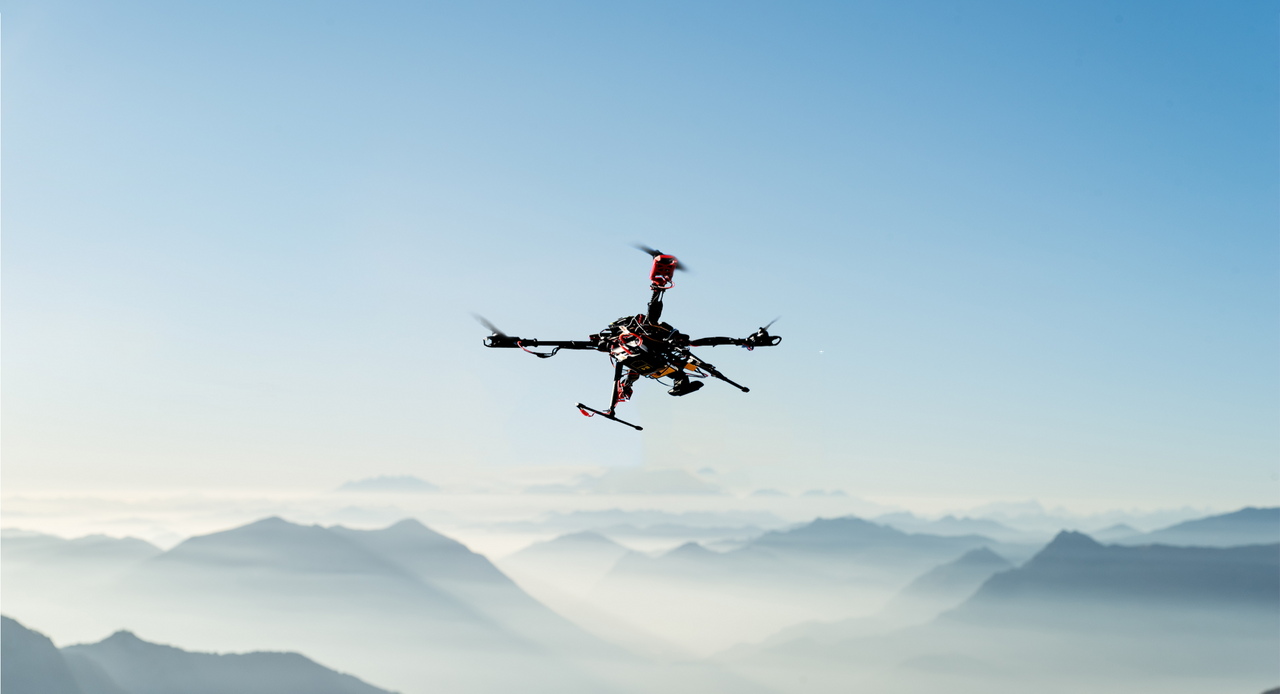Soar Robotics' Cloud-Connected Robotic Intelligence Platform For Drones
We had the opportunity to interview Kerem Ozkan, Co-Founder and Managing Director of Soar Robotics, a cloud-connected robotic intelligence platform for drones.

Q: Can you tell us a bit about yourself and Soar Robotics?
A: I have a diverse background from academia, to being an entrepreneur, to being an investor, then again back to entrepreneur roots. I got my Ph.D. in cognitive sciences at UC Irvine. I studied extensively on AI and visual cognition and published +10 papers in AI & Visual Cognition of humans. Some of my academic papers are featured in Visual Cognition, Perception, and Psychophysics, and Journal of Vision. I then founded a software development company called PCA. We had a very diverse client base from Fortune 500 companies and had operations on multiple continents. I exited at the end of 2015 and started investing in innovative deep tech companies focused on AI, robotics, IoT, and renewable energy. I was more like an operator/investor in several startups before cofounding Soar Robotics in 2019. In Soar, we develop the technology required for connected and intelligent aerial vehicles for urban and industrial applications. There is a massive distributive opportunity for UAVs and drones as we sustain fully autonomous, intelligent, and BVLOS flights. We are here to solve the fundamental problems of aerial vehicles and scale them from commercial applications to urban mobility.
Q: How did you get the idea for Soar Robotics?
A: We have direct experience with using and developing UAV software and hardware in many industries. As we directly experienced the shortcomings of current drone technology, we see that the solution is at the fundamentals of the technology. And they are not addressed. In many industries, the main reasons that drones fail to scale operations are that they lack sufficient connectivity. As a result, they can't utilize cloud technologies and AI in real-time. We founded Soar Robotics to tackle the fundamental challenges of autonomous aerial vehicles to make intelligent aerial operations a reality, which in turn will provide high-quality and cost-efficient solutions for many industries.
Q: At what point did you realize you had a viable business model?
A: Our products enable safe, intelligent, and autonomous commercial drone operations for different industries such as security, inspection, renewable energy, and agriculture. When you do the math, it becomes crystal clear that manually-operated drones should be turned into fully-autonomous, cloud-connected commercial drones to save time and money. At Soar, we offer this solution by creating drone specific networks that we call "connectivity for drones."
Q: What has been the greatest award or achievement that your company has attained so far?
A: I will say the most significant achievement is to develop our highly modular core technology. We make drones connected and smart, and our technology has many distributive propositions in many areas, from industrial automation to logistics and transportation.

Q: Are there other companies in your space and if so, how are you different?
A: Several companies are trying to achieve fully-autonomous drone operations without any human in the loop to serve urban or industrial aerial operation needs. This task itself needs our connectivity and cloud intelligence products to enable any aerial vehicle to communicate with a distributed network to complete safe and intelligent aerial missions. In this way, we not only serve our enterprise clients but also become an enabling force to make and scale any autonomous aerial operations.
Q: What is the main benefit that your company provides to the drone world?
A: We enable connected and intelligent aerial operations for urban and industrial applications. Our technology acts as building blocks for autonomous aerial operations, which include urban air mobility, industrial aerial intelligence, drone delivery, and many more.
Q: If you could go back in time and give yourself one piece of business/financial advice, what would it be?
A: Focus more on wealth generation, not income generation.
Q: Are you looking for additional funding or have a crowdfunding campaign? If so, what are you looking for in a potential investor, and how can interested readers get in touch/learn more?
A: We recently concluded our seed round, and part of it was the crowdfunding via Republic. I strongly advise early-stage companies to pursue crowdfunding. The current state of VC funding is very narrowly focused and isolated. Crowdfunding lets founders learn from the wisdom of the crowd, and it is a great asset to have in the early days of a company. I believe ignoring the crowd wisdom is the main reason why most startups fail to turn themselves into a profitable and sustainable business. Large groups are collectively smarter than individuals, and that even applies to specific areas like robotics or AI.
As we focus more on 5G technology, we are also preparing for our next round of financing. In deep tech, innovation speed is crucial. And we want to lead the innovation in the UAV and drone industry. We believe that the fundamental problems are still not solved in autonomous aerial vehicles. Regarding innovation, technology, and vision, we are well equipped to solve underlying infrastructure problems and always looking to partner with investors who share our vision. They can directly reach me at kerem (@) soarrobotics dot com
Q: Is there any advice you'd give to other aspiring entrepreneurs?
A: The main thing that you learn as a founder is mastering the art of connecting the dots. The whole entrepreneurial process is about connecting the dots and turning them into lines. This is true from innovating new technologies to product development and sales. To sustain that, you need to master the skill of adaptability. As a founder, there are lots of things that you can't predict from the start, so you have to adapt to the ever-changing dynamics of the business. I think an urge for continuously learning new things and being curious about every aspect of life is the key to mastering adaptability.
Q: Is there anything else you want to share with our audience?
A: We believe that the feasibility and commercialization of autonomous aerial operations mainly depend on solving the problem of aerial vehicle connectivity. For drones to be able to operate Beyond Visual Line of Sight (BVLOS), they need seamless coverage, real-time high throughput data transmission, command and control, identification, and regulation. Although there have been some successful attempts to leverage current mobile networks as a communications method, these networks have many shortcomings. They are far from becoming the go-to solution for aerial vehicles. We have been developing a connectivity hardware and software stack that builds on top of 5G specifications. We expect that these networking capabilities will enable seamless, safe, and intelligent operations for any autonomous aerial vehicle. We are rolling the alpha and beta releases of the hardware in the coming months to test our products with a more extensive user base under various usage conditions and start forming these ad-hoc networks to serve many industries.
Disclosure: Startup Watch is a platform TalkMarkets provides for startup company executives to discuss their companies in depth. TalkMarkets provides a suggested list of questions but the format ...
more



Good luck on your crowdfunding campaign! Sounds pretty cool.
I remember reading about another startup drone company here on TalkMarkets:
talkmarkets.com/.../taking-flight-with-up-sonder
Maybe you and @[Derek Waleko](user:100678) should team up or do some business together.
Sounds like an impressive company. Keep up the good work @[Kerem Ozkan](user:128202).